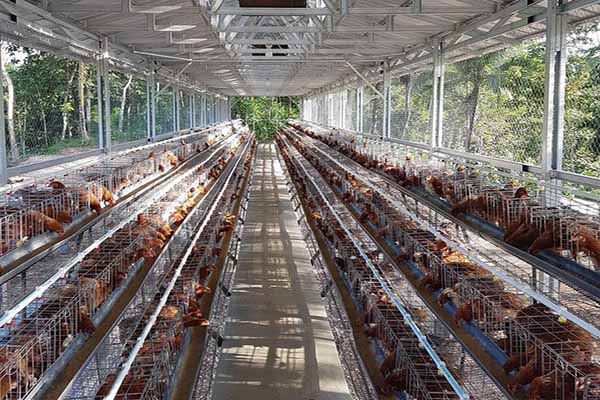Small Scale Chicken Farming in Kenya: A Comprehensive Guide
Time : 2025-05-12
Are you thinking of starting a small-scale chicken farming business in Kenya? Or maybe you already have one but want to expand or improve your operations? Either way, you’ve come to the right place! In this comprehensive guide, we’ll explore everything you need to know about small-scale chicken farming in Kenya, from choosing the right breed to marketing your products. Let’s dive in!
Choosing the Right Breed
The first step in starting a small-scale chicken farming business is selecting the right breed. In Kenya, there are several popular chicken breeds that are well-suited to the local climate and farming conditions. Here are a few options to consider:
– Layer Breeds: These chickens are bred for laying eggs. The most popular layer breeds in Kenya include:
– Red Ranger
– Rhode Island Red
– New Hampshire Red
– Broiler Breeds: These chickens are bred for meat production. The most popular broiler breeds in Kenya include:
– Cobb 500
– Ross 308
– Bovans 400
– Dietetic Breeds: These chickens are bred for their ability to consume a wide variety of feed and are known for their hardiness. The most popular dietetic breeds in Kenya include:
– Wyandotte
– Sussex
– Maran
When choosing a breed, consider the following factors:
– Climate: Ensure the breed is well-suited to the local climate.
– Purpose: Decide whether you want to focus on egg production, meat production, or both.
– Feeding: Some breeds are more efficient at converting feed into meat or eggs than others.
Setting Up Your Chicken Coop
A well-constructed chicken coop is essential for the health and well-being of your chickens. Here are some tips for setting up your coop:
– Size: Your coop should be large enough to accommodate all your chickens comfortably. As a general rule, allow about 2 to 3 square feet per chicken.
– Ventilation: Good ventilation is crucial to keep your chickens cool and prevent ammonia buildup.
– Flooring: Use a solid, non-slip surface to prevent your chickens from slipping and injuring themselves.
– Nesting Boxes: Provide nesting boxes for your hens to lay their eggs. Place them at ground level or just above to make it easier for the hens to access.
Feeding and Watering Your Chickens
Proper nutrition and hydration are vital for the health and productivity of your chickens. Here’s what you need to know:
– Feed: Choose a high-quality feed that is appropriate for your chickens’ age and purpose. Layer pellets are ideal for egg-laying hens, while grower pellets are suitable for young chicks and broilers.
– Water: Provide fresh, clean water at all times. Use a sturdy, leak-proof waterer to ensure your chickens have access to water even during dry spells.
Health and Welfare
Regular health checks and proper management are essential to keep your chickens healthy and productive. Here are some tips:
– Regular Checks: Perform regular health checks on your chickens to identify any potential issues early.
– Vaccinations: Ensure your chickens are vaccinated against common diseases such as Newcastle disease and fowl pox.
– Sanitation: Keep your coop clean and free of droppings to prevent disease and improve air quality.
Marketing Your Products
Once you have a steady supply of eggs or meat, it’s time to start marketing your products. Here are some ways to do so:
– Local Markets: Attend local markets and fairs to sell your products directly to consumers.
– Farmers’ Markets: Partner with local farmers’ markets to sell your products.
– Direct Sales: Offer direct sales to individuals and businesses in your area.
– Online Marketing: Create a website or social media presence to reach a wider audience.
Conclusion
Small-scale chicken farming can be a profitable and rewarding business in Kenya. By carefully selecting your breed, setting up a well-constructed coop, providing proper nutrition and care, and effectively marketing your products, you can build a successful chicken farming operation. Remember, success in chicken farming is all about attention to detail and hard work.
Tags












